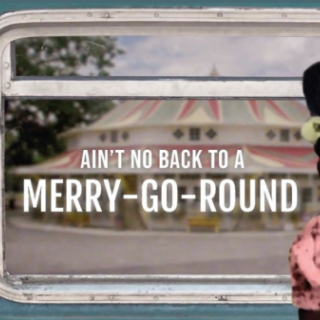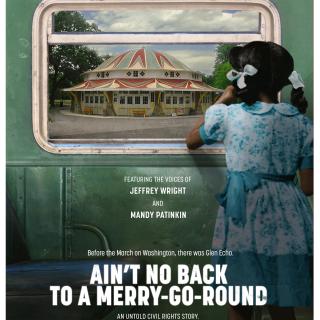Advertisement
Christmas is traditionally a popular time to open a film, so it’s no surprise that a slew of new releases are hitting the multiplex this week.
Will any of them be able to gain a foothold following last week’s record-breaking debut of Star Wars: The Force Awakens? Let’s hope so, because one of them is among the year’s best: a serious comedy that takes on a complex and controversial topic with the help of big-name stars working at the top of their game.
The Big Short, directed and co-written by Adam McKay (Anchorman), is a based-on-reality examination of the banking and housing “bubble” that triggered 2008’s Great Recession.
This sounds like the kind of dry, complicated subject that’s best handled by a well-documented book—and indeed, the source material is Michael Lewis’s book of the same name. In McKay’s hands, the subject is still complicated, but it’s anything but dry.
Shooting in documentary style, McKay introduces us to several investment insiders who realize the banks are making huge profits by selling bonds backed by mortgages—mortgages increasingly being offered to people who can’t afford them. The insiders know a collapse is inevitable as more and more homeowners default on their loans, but they don’t try to raise an alarm. (Realistically, no one would believe them if they did.) Instead, they hope to profit from the eventual disaster by “short selling” the bonds—in effect, betting against their success.
Explaining the situation that helped to create a worldwide recession can’t be done without introducing a whole lot of obscure terms and practices, but McKay finds ways to keep his lessons light and entertaining—for example, by having Selena Gomez make a bet in a casino while everyone arounds her bets on her chances of success.
Mostly, though, McKay concentrates on the struggles and personalities of his prophetic protagonists: Michael Burry (Christian Bale), brilliant but socially awkward; Jared Vennett (Ryan Gosling), slick and frankly self-serving; Mark Baum (Steve Carell), angry at the world and haunted by his brother’s suicide; Charlie Geller and Jamie Shipley (John Magaro and Finn Wittrock), young and eager to get a foot in the door with the help of industry dropout Ben Rickert (Brad Pitt).
Bale and Carell have already landed award nominations in the Golden Globes’ “musical or comedy” category, as has the film itself. Unless something goes very awry, this smart and illuminating flick should earn similar recognition at the Oscars.
Rating: 4 stars (out of 5)
Not the year’s best transgender flick
What do you get when you combine the director of The King’s Speech, the star of The Theory of Everything and the true story of a transgender pioneer? In the case of The Danish Girl, you get less than the sum of its promising parts.
One suspects director Tom Hooper is missing the mark when he opens the film with striking images of the seaside accompanied by Alexandre Desplat’s lush score. It’s all ethereally beautiful, but what does it have to do with the tale of a Danish man who comes to believe he was born into the wrong body?
It seems clear that Hooper wants us to invest ourselves emotionally in the life of artist Einar Wegener (Eddie Redmayne) before we even meet him. Maybe that’s because Einar turns out to be a rather vacant personality, both before and after he begins reinventing himself as a woman.
Far more interesting is his wife, Gerda (Alicia Vikander), who lovingly dominates her passive husband but resents the relative difficulty she has forging her own artistic career in the patriarchal atmosphere of 1920s Copenhagen.
2015 has already given us one great transgender flick: the low-budget, iPhone-recorded Tangerine. It’s also given us one great transgender heroine in the form of Caitlyn Jenner. As overblown as it is uninvolving, The Danish Girl is notable only for giving Redmayne another opportunity to demonstrate his chameleonic acting abilities.
Rating: 3 stars (out of 5)
Beautiful but bland
Even if you didn’t know Youth was directed and scripted by Paolo Sorrentino (The Great Beauty), you’d suspect an Italian was at the helm. Dourly introspective, beautifully photographed and occasionally surreal, it may remind you of films by Fellini and other talented countrymen.
But don’t confuse style with substance. Other than its visual appeal, Youth has little to recommend it.
Michael Caine gives his usual grounded performance as an aging composer and conductor who refuses a request to perform for the queen. Harvey Keitel also holds his own as an aging filmmaker, while Jane Fonda chews up the scenery during a brief but profanity-laden appearance as an aging film star.
Notice the common adjective: aging. In Sorrentino’s eyes, it’s a process marked by loss, regrets, prostate problems and the compulsion to ogle youthful beauty. Enjoy the scenery, and enjoy Caine’s performance, but don’t expect to find anything profound or original in what transpires.
Rating: 2½ stars (out of 5)
Also opening this week (Rotten Tomatoes “fresh” ratings listed in parentheses):
The Hateful Eight: Three hours’ worth of racially charge tension and Quentin Tarantino-style frontier violence (88 percent).
Concussion: Will Smith in a drama about the health dangers of playing football (65 percent).
Joy: The director and cast of Silver Linings Playbook reunite for the story of a woman (Jennifer Lawrence) who founds a business dynasty (61 percent).
Daddy’s Home: A husband (Will Ferrell) vies for his stepchildren’s affection after his wife’s ex (Mark Wahlberg) suddenly materializes (38 percent).
Point Break: Remake of Kathryn Bigelow’s 1991 crime caper (no rating yet).





